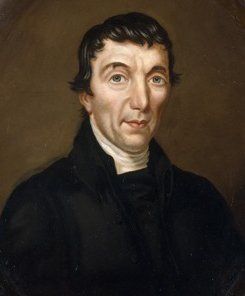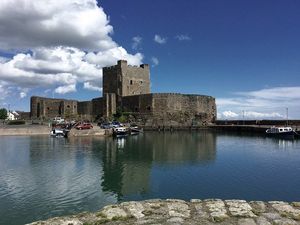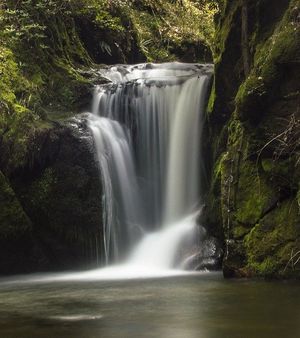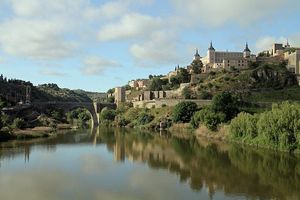
‘Brethren, when I am in the dust this young lad will be a great man.’ These were the words of an old minister in Wales, speaking of John Elias (1774-1841). Another testimony concerning him asserts, ‘He was, without a doubt, the most popular preacher that ever rose in Wales.’
When he was born, North Wales was in great spiritual darkness. In the grace and power of God, however, things were to change dramatically. God raised up John Elias to preach the gospel at a most needful time. His parents did not take him to church, but John had the benefit of a godly grandfather, with whom he was very close.
The dark island
While he exercised a wide-ranging itinerant ministry, it is with the island of Anglesey that his name has a special association. He settled there in 1799, a move, which he regarded as ordered by providence, from his native county of Caernarvonshire. It has been recorded: ‘There is no doubt but the Lord, in mercy to Anglesey, brought Elias there: for it was sunk into the lowest state of corruption and immorality. But the Lord, instead of dealing with them according to their abominations and rebellions, showed the most tender compassion towards them, brought one of his choice ministers there, and caused him to publish to them peace and reconciliation through the blood of the Lamb! And great and astonishing were the effects which attended that ministry.’

There was stealing, fighting, drunkenness, adultery, smuggling, and much more, going on in Anglesey. Vessels would be wrecked off the Anglesey coast from time to time, and the islanders, careless about the safety or otherwise of those on the boats, would go down to the shore and carry off as much ‘booty’ as they could manage. After God began to visit the island under John Elias’ ministry, many who had taken part in such plundering actually returned the stolen property to the seashore. Within forty years, no less than forty-four chapels were built – and filled with worshippers.
Rhuddlan fair
Back on the mainland, one of the most famous occasions in Elias’ ministry took place at Rhuddlan in Flintshire. For years a fair had been held outside the town at harvest time, and the place had become a stronghold of Satan. It was held on the Sunday and was attended by great crowds from all around. Revelling and rioting were commonplace, and the tense atmosphere was heightened by the fact that various farming implements such as scythes and hooks were bought and sold.
Though discouraged from doing so by some of his friends, who felt the whole venture was too dangerous, Elias determined to visit the fair in order to preach the Word of God to the people. This was in 1802. At the heart of the enemy’s camp, he took his stand on the steps of the New Inn. The sound of music, singing and dancing could be heard from the taverns.

He announced the singing of part of Psalm 24, which itself had a most solemnizing effect. The noise going on all around quietened down. Crowds gathered to see what was happening. Some began to hide away the tools and implements they had bought. After earnest prayer, in which Elias thanked the Lord that he had not caused the earth to open and swallow them up alive into hell, the whole company was filled with awe and dread. He then read out his text. It was Exodus 34:21: ‘Six days thou shalt work, but on the seventh day thou shalt rest; in earing (ploughing) time and in harvest thou shalt rest.’ He wept as he preached. The Word of God was brought home to people’s consciences and hearts with great power and conviction.
The more he continued, the greater was the people’s alarm. No one spoke a word against the preacher. Everyone appeared panic-stricken. Several were converted. God gave his servant the victory. The result, not least, was that Rhuddlan fair was finished – and not only Rhuddlan, for no such gatherings were seen again elsewhere in Flintshire either. This was done, not by any human power, authority or force, but merely by preaching the gospel. It was seen that ‘The weapons of our warfare are not carnal, but mighty through God to the pulling down of strongholds.’
Authoritative preaching
John Elias’ preaching was authoritative, as he declared the Word of God fearlessly. It was vivid – indeed it is said that under his ministry people not only heard of the crucifixion of Christ, they felt they had actually seen it. It was terrifying, as he sought to persuade sinners to flee from the coming wrath. It is recorded that as many as 2,500 people were added to the church in Caernarvonshire in one year, in consequence of ‘the powerful influence which was given by [that] extraordinary sermon’. Elias preached on Psalm 68:1: ‘Let God arise, let his enemies be scattered.’ It was sweet, as he set forth the unsearchable riches of the love of God and the excellence and sufficiency of the Lord Jesus Christ to needy sinners, and that God is ready to receive them back to his arms today if they would only repent.
















